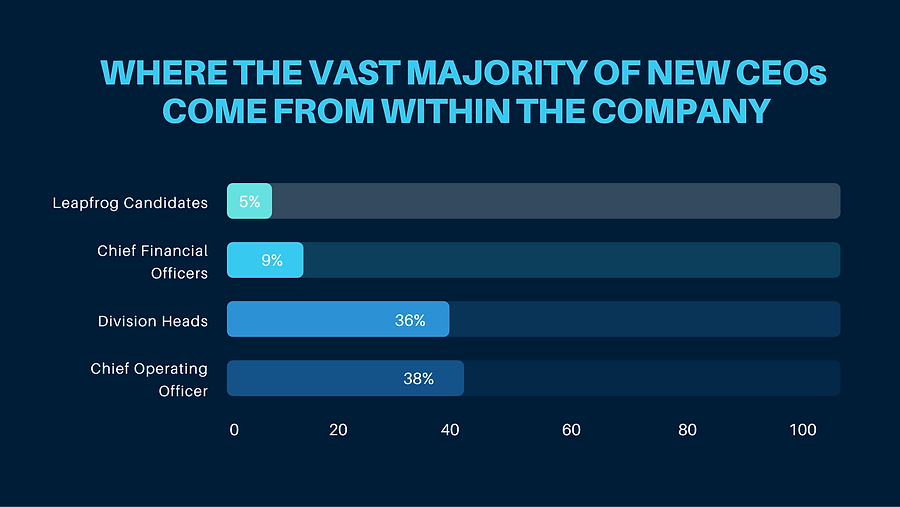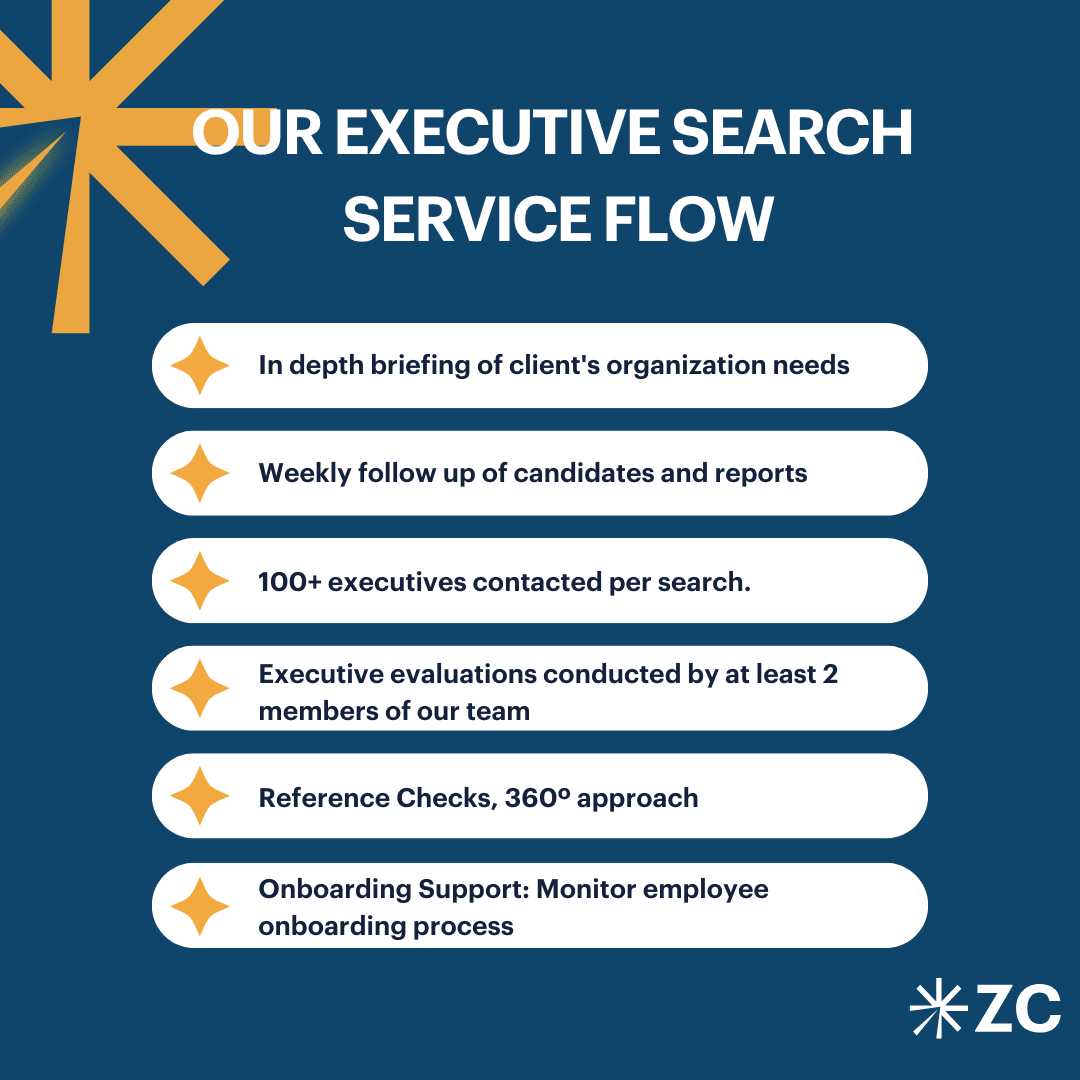The best Executive Search approach to succed
The vast majority of new CEOs still come from within organizations: in 2020, 77% of new S&P 500 CEOs were internal Promotions. Identifying where CEO successors come from within the company allows us to be extra careful at our executive search for certain roles, because by doing it we might be hiring our future CEO.
Where in the company CEOs are most likely to come from?
How do we guarantee we are choosing the best possible candidates?
How to find the best search executive firm to do it?
First: where do most CEOs come from?
According to studies, the most promising candidates in your company may not be precisely where you expect.

Chief operating officers accounted for 38% of new CEOs in the S&P 500. Division heads were only two percentage points behind them, at 36%. Chief financial officers were next, at 9%. CFOs appeal to boards that want to ensure continuity, because they often serve as the right hand to the CEO.
Leapfrog candidates with the least significant representation in the study accounted for roughly 5% of new chief executives.
What is newsworthy is that the last common choice, the leapfrogs, had the highest share of CEOs in the top quartile of performance: 41%. Former division heads and COOs were next, at 27% and 25%, while the share of CFOs in the top quartile of performers was only 8%.
“Leapfrog CEOs” leaders appointed from one level below C-suited officers or division heads, with titles such as senior vice president and general manager, have the best odds to steering their firms into the top quartile performers.
Now we know where our future CEO is most likely to come from: how do we succeed at hiring executive search?
In a world in which finding the right candidates is a major factor in success and it is getting harder and harder every time because companies currently face an unprecedented number of change challenges and opportunities. At the same time, more companies than ever are now drawing from the same executive talent pool, which in itself has evolved and has fundamentally changing needs. As we have seen, the priorities and consequently the profiles of today’s executives have changed, and it is key that businesses recognize and acknowledge these changes in order to attract and retain the best executive talent.
Here is a generalist approach on how to perform an executive search:
- Always understand what specific skills are critical for the role and use them to focus your recruitment process all the way
- Keep an organized schedule for the process; set timelines and be prepared for unforeseen changes that may come up throughout the process.
- Make sure the interviewing process is being kept focused and conducted naturally
- Maintain open, clear, and respectful communication with candidates during the entire process.
One of the most important parts of this exercise is choosing your Executive Search Partner wisely, because an executive search firm can help you design a process that will effectively assess the candidates’ ability to embrace your mission and build upon the current success, ensuring they are ready from day one.
Here is a helpful checklist your Executive Search team should have:
- Extensive expertise in your industry.
- Proven track record of representing companies with professionalism.
- Strong Executive Search strategy.
- A transparent talent search process.
If you want to find out more about our executive search services and how they can benefit your business, contact our Executive Search Firm Zavala Civitas, which is specialized in executive search in China. Click here.

Bibliography
Harvard Business Review. Jan-Feb 2022. Web.https://www.forbes.com/sites/edwardsegal/2022/01/13/outside-ceo-candidates-outperform-in-house-choices-new-study/






